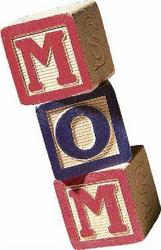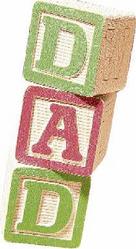
Eulalee Thompson - BE WELL
It was a great privilege to act as moderator last Tuesday at a Scotiabank Jamaica-sponsored panel discussion on the ever controversial topic of the media's role and responsibility for society's tribulations. In this case, the focus was on the spread of HIV infection. The panel discussion, held at the Terra Nova Hotel in Kingston, was part of a worthy cause, Scotiabank joining forces with the Caribbean Broadcast Media Partnership on HIV and AIDS to launch a regional 'HIV Testing Day' to be observed on Friday. The day will also be observed in 10 Caribbean states and coincides with International HIV Testing Day.
I gather that on that day, Scotiabank will undertake, in partnership with health personnel, voluntary counselling and HIV testing at three of its banking locations.
The topic, as presented to me for discussion was: 'Print and broadcast media entities that produce sexually explicit content should be held responsible for the sexual behaviours of our youth which potentially increases HIV infection'.
It raised many issues, including the media's role and responsibility particularly in health reporting; the impact of media on behaviour, particularly on the sexual behaviour of young people and it called on the panel to analyse media content and to review reasons for the continuing spread of HIV infection in Jamaica and the rest of the Caribbean.
Parents' role
My articulate and opinionated panel was up to the task; it included young Minkah Amen-ra, a student debater from Lannaman's Preparatory School; Gihon Mitchell from Rise Life Management; Ainsley Reid of PLWHA/Caribbean Conference of Churches; Andrew Francis, Alfred Palmer, Nickeisha Barnes all from the Ministry of Health; and, from the media Luke Douglas, Monique Edwards and Roxroy Mclean.
The panel, made up mainly of young people in their 20s, was concerned that children are now exposed to many 'new media' for example, cellphones, the Internet, CDs and cable television. It was a relief to hear the panel's general view that, while the media should take some blame for children's sexual behaviour, other entities - the school system, but in particular, parents and families must take responsibility for their children's behaviour.
Monique Edwards' input was particularly forthright and relevant. Pulling on her own upbringing and parental guidance, she pointed to the important role of parents to set rules, teach sound values including right and wrong, teach children about sex and respect for themselves and their bodies and to 'train up' their children in the way of good citizens. Of her mother she said: "She made me into the person that I am now." Well said.
Media and society
It's easy to blame other people and entities, it releases us of our responsibilities and soothes our emotional pain. So, when children turn wayward, it's the media's fault but when they walk the straight and narrow, the parents did a good job.
The media are not essentially responsible for raising people's children, that is the essential responsibility of parents (and they may call on the support of other institutions and relevant professionals). However, I will quickly add that I have never agreed with some media colleagues that the media merely reflect what happens in society; media can act as a change agent and there is a symbiotic relationship between media and society which includes processes of reflection, sanctioning, approval and behaviour modelling.
Behaviour modelling
Various studies and theories support my opinion. First, for example, there is social learning theory that speaks to behaviour modelling as occurs in role modelling in the media, the encoding of information which is internalised and then reproduced. Second, there is the priming hypothesis - media give people ideas about how to behave, give them cues and associative stimuli.
All of us are exposed to media but only some of us go wayward; sound parental grounding is the stabilising force. It's the buffer against environmental contaminants. You know, I always like to tell people that even though I am an adult and I can do almost anything I want to, I still don't because somewhere in my mind's eye, in the deep recesses of my brain I see my mother's disapproving gaze and hear her voice. Like Monique's mom, she sure did a good job on me.
eulalee.thompson@gleanerjm.com



